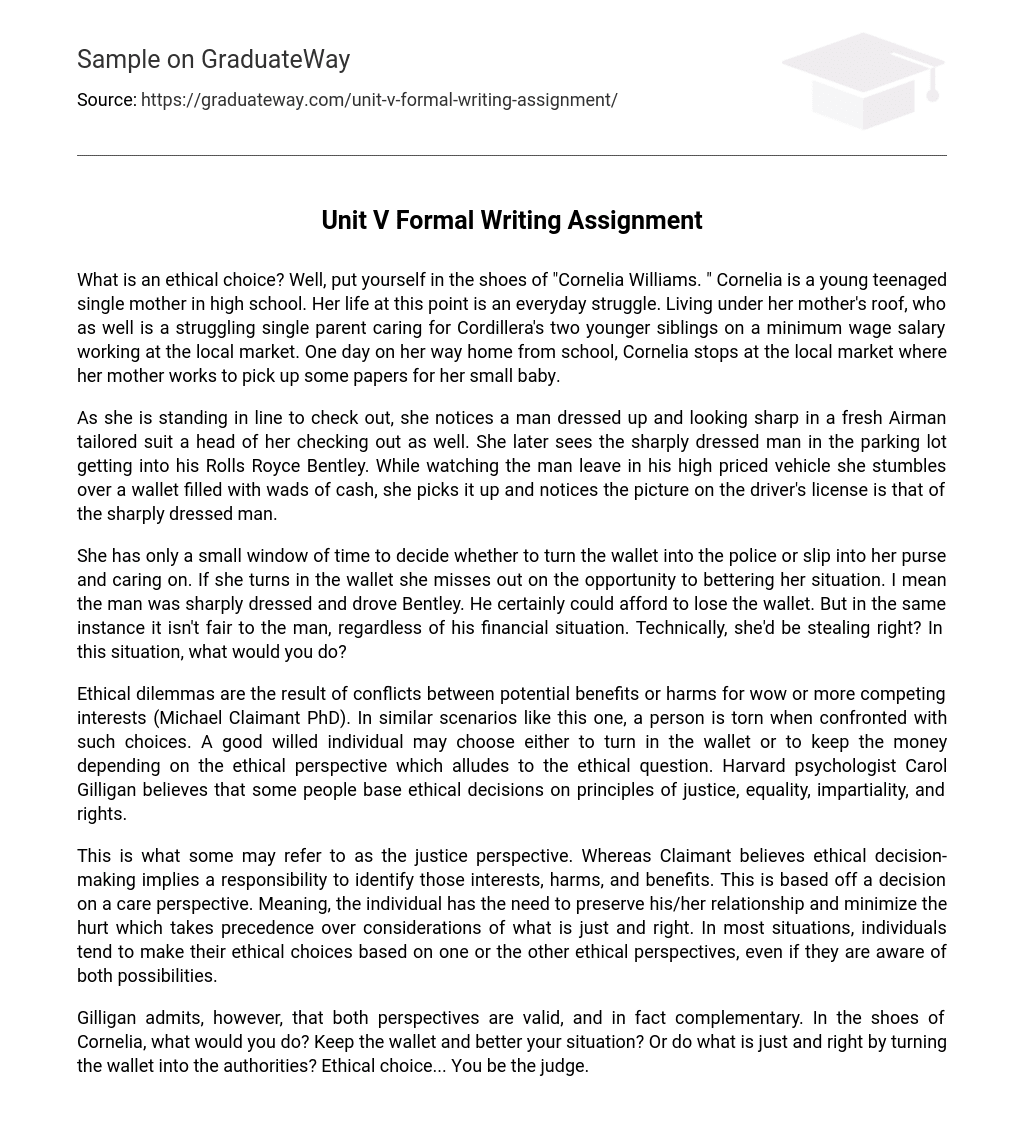What is an ethical choice? Well, put yourself in the shoes of “Cornelia Williams. ” Cornelia is a young teenaged single mother in high school. Her life at this point is an everyday struggle. Living under her mother’s roof, who as well is a struggling single parent caring for Cordillera’s two younger siblings on a minimum wage salary working at the local market. One day on her way home from school, Cornelia stops at the local market where her mother works to pick up some papers for her small baby.
As she is standing in line to check out, she notices a man dressed up and looking sharp in a fresh Airman tailored suit a head of her checking out as well. She later sees the sharply dressed man in the parking lot getting into his Rolls Royce Bentley. While watching the man leave in his high priced vehicle she stumbles over a wallet filled with wads of cash, she picks it up and notices the picture on the driver’s license is that of the sharply dressed man.
She has only a small window of time to decide whether to turn the wallet into the police or slip into her purse and caring on. If she turns in the wallet she misses out on the opportunity to bettering her situation. I mean the man was sharply dressed and drove Bentley. He certainly could afford to lose the wallet. But in the same instance it isn’t fair to the man, regardless of his financial situation. Technically, she’d be stealing right? In this situation, what would you do?
Ethical dilemmas are the result of conflicts between potential benefits or harms for wow or more competing interests (Michael Claimant PhD). In similar scenarios like this one, a person is torn when confronted with such choices. A good willed individual may choose either to turn in the wallet or to keep the money depending on the ethical perspective which alludes to the ethical question. Harvard psychologist Carol Gilligan believes that some people base ethical decisions on principles of justice, equality, impartiality, and rights.
This is what some may refer to as the justice perspective. Whereas Claimant believes ethical decision-making implies a responsibility to identify those interests, harms, and benefits. This is based off a decision on a care perspective. Meaning, the individual has the need to preserve his/her relationship and minimize the hurt which takes precedence over considerations of what is just and right. In most situations, individuals tend to make their ethical choices based on one or the other ethical perspectives, even if they are aware of both possibilities.
Gilligan admits, however, that both perspectives are valid, and in fact complementary. In the shoes of Cornelia, what would you do? Keep the wallet and better your situation? Or do what is just and right by turning the wallet into the authorities? Ethical choice… You be the judge.





